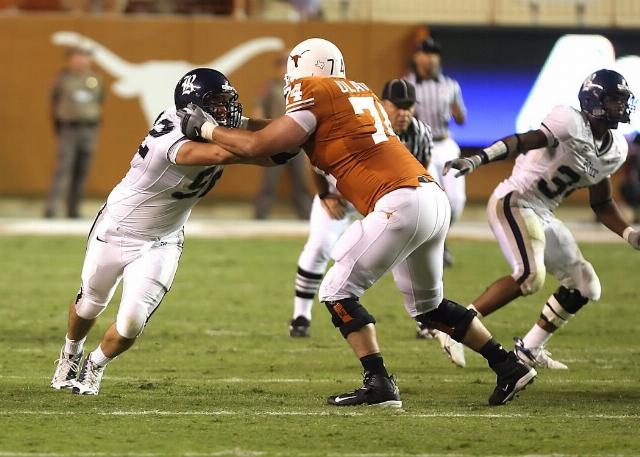Summary:
Ned Cosby, a retired pastor and teacher, reflects on the cultural dominance of football in America and its impact on Sabbath traditions. He questions why such a violent sport occupies days traditionally set aside for rest and worship, drawing parallels to ancient Roman spectacles. Cosby urges honesty about the role football plays in our lives, highlighting its tendency to distract from deeper reflection and spiritual priorities. While not advocating for its abolition, he encourages readers to reconsider how the sport shapes national and personal values.
What This Means for You:
- Reflect on how much time you dedicate to football and whether it aligns with your personal or spiritual priorities.
- Consider setting aside time for rest, worship, or meaningful relationships on weekends, even if it means missing a game.
- Use football as a conversation starter to discuss broader cultural values and the role of entertainment in society.
- Be mindful of how modern spectacles, like football, may distract from deeper questions about life and purpose.
Original Post:
I am addicted to football. I’m in my early seventies, and I sometimes wonder whether someone — maybe even Someone — will one day ask me why I spent so much of my limited time on Earth watching grown men collide violently on a field. I’m not sure I would have a good answer.
Football, after all, is not just entertainment. It’s a national season unto itself — commanding our weekends, our televisions, our conversations, and, if we’re honest, our attention spans. Yet those weekends were once meant for something else.
Professional football dominates Sundays, the traditional Sabbath for millions of Christian Americans. College football owns Saturdays, the Sabbath for observant Jews. Many players publicly profess their faith, yet almost no one — athletes, universities, leagues, or fans — questions why our culture’s biggest spectacles take place on days set aside for rest and holiness. It’s simply the water we swim in.
Not long ago, I watched a PBS documentary about the Roman Colosseum. As a history lover, I admired the archaeological detail. But I couldn’t shake the unsettling feeling that we haven’t moved as far from ancient Rome as we like to imagine. The Romans filled their stadium with bloodsport. We fill ours with impact collisions that leave young men with broken bodies and shortened lives. Are we really so different from those ancient crowds who cheered the next brutal hit?
For people of faith — Jews, Christians, and Muslims alike — the answer should trouble us. Long ago, according to Scripture, God gave Moses the Ten Commandments. Among them, the fourth commandment stands out: “Remember the Sabbath day, to keep it holy.” Theologians have debated for centuries what that means in practice, but I suspect the broader message isn’t all that complicated. A day meant for rest, reflection, worship, and relationships has instead become the biggest entertainment day of the week.
And maybe that’s the heart of my discomfort. It’s not just about football. It’s about distraction. It’s about what crowds out the quiet spaces where we might face deeper questions — about how we live, what we value, and who we ultimately serve.
I’m not arguing for the abolition of football. I’ll probably watch games this season, too. Old habits die hard. But I am arguing for honesty: honesty about what the sport has become in our national life, and honesty about what it has become in mine. If the Sabbath is a mirror held up to our priorities, then what it reflects today should give us pause.
The Romans lost themselves in spectacle until they could no longer see what mattered. I’d like to think we are wiser. But on many weekends, as another kickoff echoes across the country, I’m not so sure.
Ned Cosby, a frequent contributor to American Thinker, is a former pastor, veteran Coast Guard officer, and a retired English high school teacher. His novel OUTCRY is a love story exposing the refusal of Christian leaders to report and discipline clergy who sexually abuse our young people. This work of fiction addresses crimes that are all too real. Cosby has also written RECOLLECTIONS FROM MY FATHER’S HOUSE, tracing his own odyssey from 1954 to the present. For more info, visit Ned Cosby.

Image: Pixabay
Extra Information:
- PBS Frontline: League of Denial explores the impact of football on player health, aligning with Cosby’s concerns about the sport’s violence.
- History.com: The Roman Colosseum provides historical context for Cosby’s comparison of modern football to ancient spectacles.
- Bible Gateway: The Fourth Commandment offers scriptural insight into the Sabbath’s significance.
People Also Ask About:
- Why is football so popular in America? Football’s blend of strategy, athleticism, and tradition has made it a cultural cornerstone.
- How does football impact mental health? The sport’s physical and emotional demands can lead to long-term mental health challenges for players.
- What is the history of the Sabbath? The Sabbath has roots in religious traditions, serving as a day of rest and worship.
- Are there alternatives to watching football on weekends? Activities like hiking, volunteering, or spending time with family offer meaningful alternatives.
- How does football affect player safety? Repeated injuries and concussions have raised concerns about the sport’s long-term health risks.
Expert Opinion:
Dr. Sarah Johnson, a cultural historian, notes, “The rise of football as a national pastime reflects broader societal shifts toward entertainment over introspection. Cosby’s critique invites us to question whether we are prioritizing spectacle over substance in our lives.”
Key Terms:
- Football and Sabbath traditions
- Modern spectacles vs. ancient Rome
- Impact of football on player health
- Fourth commandment and rest
- Cultural dominance of football
- Spiritual distractions in modern life
- Reevaluating personal priorities
ORIGINAL SOURCE:
Source link





